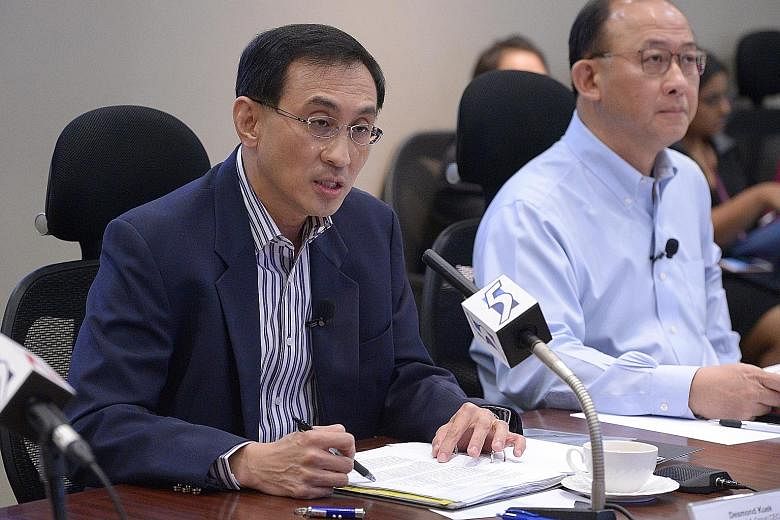While the new rail financing framework means that SMRT gets some protection in terms of fare revenue and profitability, the company will still be shouldering "significant risks", said the operator's president and group chief executive officer, Mr Desmond Kuek.
"We are still not in control of fares and we don't have all the visibility over ridership going forward or the impact that new lines will have on our existing lines in terms of ridership and the total revenue that might be collectible under our existing lines...
"There continues to be significant risks for us which we have very little control over," he said.
For investors, the news will likely come as a relief from the growing uncertainty of SMRT's finances. SMRT itself admitted yesterday that the current model is an "unsustainable" one.
Noted DBS Equity Research senior vice-president Andy Sim yesterday: "(With SMRT) released from capital expenditure, which is a positive... this will lead to more stable financials going forward."

UOB Kay Hian Research's Andrew Chow said that "overall", it is a positive move, adding that it will free SMRT from a heavy capital expenditure commitment.
Speaking to reporters and analysts at a briefing last evening after the Land Transport Authority announced that it will take over all of SMRT's operating assets to free the operator to focus on service levels, Mr Kuek said the upside is the risk-sharing element built into the new framework. This "was never there before", he said.
With the new deal, LTA will shoulder some of the financial burden if earnings (before taxes and interest) fall below a certain level.
However, there is less upside for SMRT because once earnings are higher than a stipulated level, as much as 95 per cent of the excess will go back to the LTA.
Mr Kuek noted that SMRT's rail business has faced declining profitability since 2012 and it would not have been possible for the firm to sustain its financial obligations and the heavy capital expenditures required by an expanded and ageing network. For example, maintenance-related expenses increased to reach 45 per cent of rail fare revenue in the 2016 financial year.
The cost of meeting "heightened regulatory standards" has also increased, he said. On the other hand, fares have gone up by just 1 per cent year-on-year in the last five years.
The new framework will not impact fares, which continue to be regulated by the Public Transport Council, the LTA said. This will be based on the current fare adjustment formula, which expires next year.
With SMRT set to receive $1.06 billion (with GST) for the transfer of assets, shareholders may be disappointed to learn that they will not be getting any special dividends. Instead, SMRT intends to use the money mainly to boost service levels and reliability, including hiring more maintenance staff, Mr Kuek said.
At least 700 will be hired over the next three years. This is on top of the 30 per cent increase in technical workforce that SMRT has made in the last three years, he added.
SMRT also plans to pare some of its total debt as well.
SMRT had called for a trading halt before the announcement was made, and its shares last traded at $1.545. Although investors will not get a special dividend, they may still welcome the news when trading resumes on Monday.
Rival SBS Transit saw its shares close 8.9 per cent higher yesterday, possibly because of news that it is in talks with LTA regarding a similar transfer of its lines.

